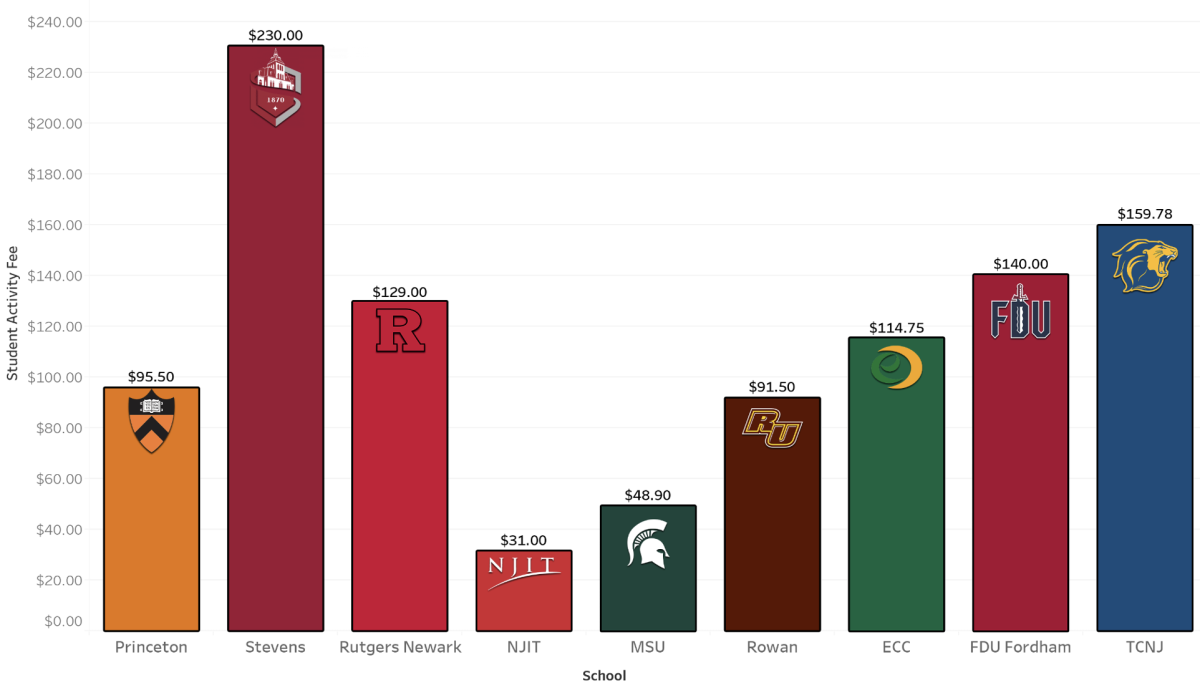It’s pothole season in NJ
As the winter ends and spring blooms, drivers must now prepare for “pothole” season.
Potholes form during the winter season when snow and ice melt, seeping into cracks in the roads. The water then refreezes and melts, further expanding the cracks in the asphalt. Every time a vehicle runs over the area, more and more pavement breaks away until a pothole is formed.
Potholes can be fixed by removing loose debris and then patching the area with asphalt. This is seen as a cheaper and more efficient solution than digging out the entire road and repaving it. While there is a set way to repair roadways, the infrastructure of New Jersey requires major renovation.
In 2016, the American Society of Civil Engineers (ASCE) published a report card to grade New Jersey’s infrastructure. The grade? A D+.
Based on the report card, a D grade means that the infrastructure of the state is below standard. Many of the state’s structures are at risk of failing and show signs of major deterioration and deficiencies. The ASCE grades the various sectors of infrastructure based on eight criteria; capacity, condition, funding, future need, operation and maintenance, public safety, resilience, and innovation. The same grading metric is also used for the ASCE’s report card for the whole country, which also received a D+.
New Jersey received this low rating due to deficiencies in the state’s structures. According to the report, nearly 9% of New Jersey’s bridges are “structurally deficient”, meaning major repairs are needed. The same can be said of about 42% of the roads, and these structural deficiencies cost commuters on average $1,951 per driver in lost time, fuel, and other vehicle damages.
The amount of people taking NJ Transit has also risen, but NJ Transit lacks the capacity to service the increasing number of riders. Money is also a crucial reason why the state’s infrastructure grade is so low. New Jersey’s infrastructure is funded by the Transportation Trust Fund (TTF), but it no longer has the ability to give money to new projects. The TTF is funded by fuel taxes along with toll road revenue, and while drivers have noticed an increase in toll prices, gas prices remain the same. In 2016, New Jersey boasted the ninth largest gas tax in the country.
The ASCE believes that there are three main ways for New Jersey to raise its grade and improve its infrastructure. Finding a new way to fund projects tops that list, as New Jersey has relied on the TTF for 25 years. New Jersey and New York recently began pushing for the Gateway Project, a proposed plan to help expand and repair many train lines connecting the two states. The problem is securing funding, as President Donald Trump has been reluctant to provide more money to the states.
Instead of relying on federal capital, developing a new, better method of securing funding could help kickstart new projects. Prioritizing what structures in need of repair along with building more resilient structures would likely also improve New Jersey’s grade.
Although the report was conducted three years ago, many believe not enough has been done in that time to notice a positive change. Anthony Granata, a second-year civil engineering student at NJIT, believes that New Jersey deserves their D+ grade. “I feel like there’s been large efforts to improve it,” Granata, who commutes to campus, said, “but considering how much infrastructure is still left to be rehabilitated, the grade from 2016 still probably fits—maybe with slight improvement.”































